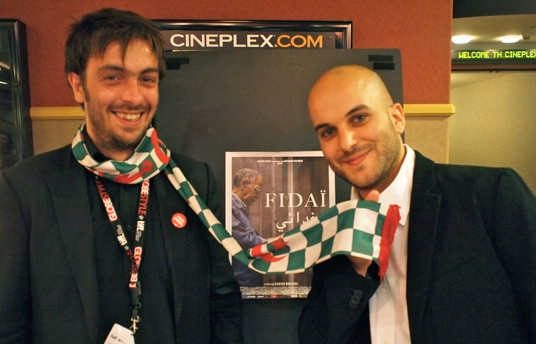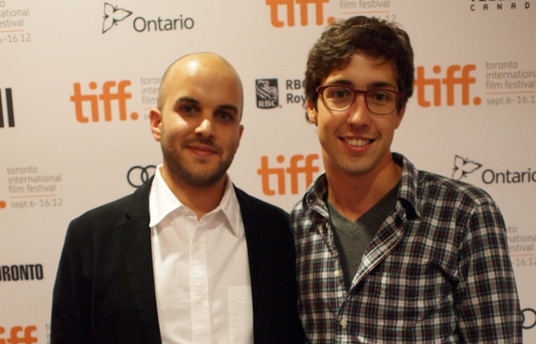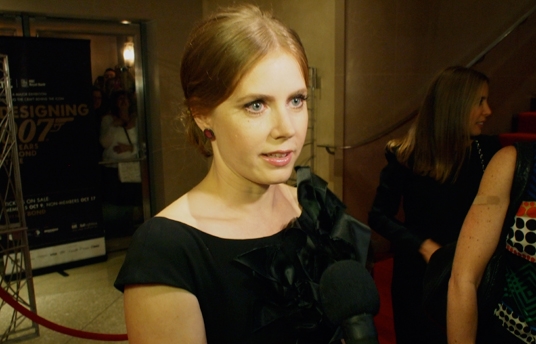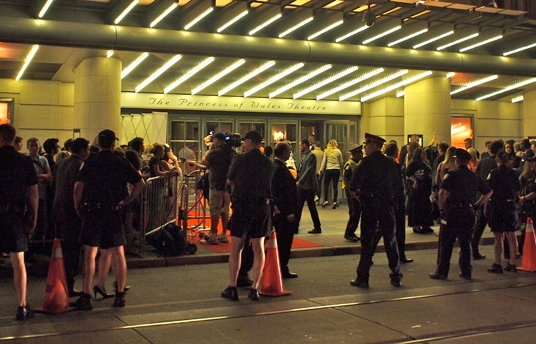DFI at TIFF – Day 2
Sep 08, 2012

Fidaï director Damien Onouri (right) and executive producer Alexandre Singer after the screening (a DFI Mena Grantee)
By Anealla Safdar in Toronto
Three of four films featuring the Arab region in yesterday’s schedule were set in, or depicted, Algeria – a country enjoying its 50th year of independence.
Saïd Ould-Khelifa’s “Zabana!” kicked things off at this year’s hub – the TIFF Lightbox. German filmmaker Heinz Emigholz’s “Perret in France and Algeria”, a visual and factual insight into the pioneering architect’s work during the colonial period, followed.“Fidaï” (a DFI Mena Grantee), Damien Ounouri’s personal tribute to his great uncle Mohammed el Hadi closed the evening, complete with a question and answer session at the four-storey Yonge and Dundas multiplex.

Fidai director Damien Ounouri with Laurent Maglore
TIFF has dedicated more slots for Arab cinema this year, partly, one could guess, because of the Algerian anniversary. Rasha Salti, an international programmer focused on the Middle East and Africa, was hired last year by TIFF’s artistic director Cameron Baily; her influence is also being felt.
“I felt emotional throughout “Fidaï”, a young French cinephile Laurent Maglore told me after the screening. “We don’t know a lot about the Algerian war; it’s not something that’s talked about in France.”
Later, excitedly, he posed for a photograph with Ounouri – a moment which justified the very concept of film festivals.

Amy Adams speaking to the press at "The Master" premiere
A different kind of film appreciation – but no less important – took place at the gargantuan Princess of Wales Theatre, home to 2,000 seats. Paul Thomas Anderson’s “The Master” premiered later than the scheduled 9 pm; the cast flirted with fans and press as they meandered down the red carpet for a few extra moments. Queues stretched to the road’s end as people attempted to catch a glimpse of glamour. Police formed into a line, and waited to leave until the chaos ended.
The two-hour melodrama (the film, that is) has received reviews, bursting at the seams with praise.

A view of the Princess of Wales theatre
“Utterly Absorbing” wrote The Guardian, Hollywood Reporter called the film extraordinary more than once and Variety raved that “Anderson stages some of his most complex and demanding sequences in lengthy single takes.”
When, whether and should Arab cinema witness such a scale at international events are debatable subjects, but judging from this year’s inclusion by programmers in Venice and Toronto, the industry and public’s interest has taken a positive leap.
The Master Trailer